Rogene Gee Calvert: About helping others
Updated: 2015-05-08 10:38
By May Zhou in Houston(China Daily USA)
|
||||||||
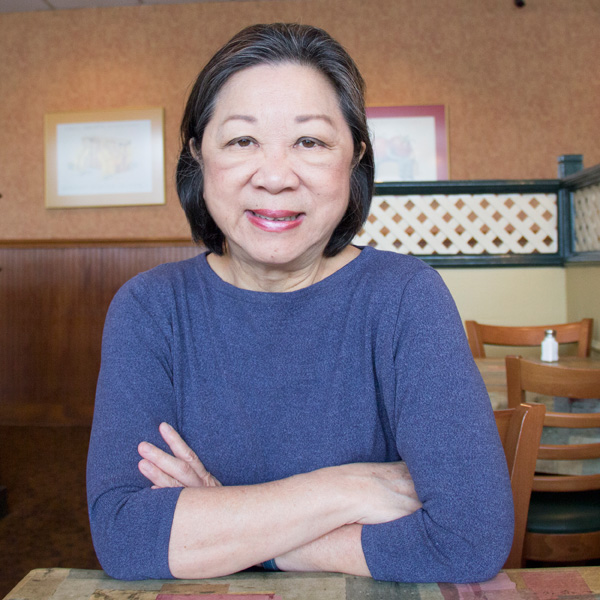 |
|
Rogene Gee Calvert has devoted much of her time to public service. May Zhou / China Daily |
Even though she has never held elected office, Rogene Gee Calvert could still be called a public servant for the work she has done. After all, her public service got her named one of the 50 Most Influential Women of 2014 by Houston Woman Magazine in January.
Starting with a drug abuse evaluation program, Calvert went on to work for the United Way, the Inter-Ethnic Forum of Houston and the Asian Chamber of Commerce, to name but a few.
One of Calvert's proudest achievements is the

founding of the HOPE Clinic, which provides health care services to all, regardless of a patient's ability to pay.
Located in the heart of Houston's Chinatown, HOPE serves the uninsured, underinsured, those with limited English proficiency, and the low-income in 14 different languages, including Mandarin, Cantonese, Vietnamese, Korean, Burmese, Arabic and Spanish.
Born in Houston to Chinese parents, Calvert started working at her father's grocery store when she was 12. "I stacked groceries, dealt with people. We all had a role to play in the family," Calvert recalled.
"I have always liked to approach issues in a systematic way and been interested in government, so I chose political science when I went to the University of Texas."
That's where Calvert met her future husband. They moved to North Dakota for two years when he was enlisted in the US Air Force, returning to Houston in 1971.
Calvert's first job was with the Community Welfare Planning Association dealing with drug abuse. When the organization was later absorbed by the United Way, she continued to work with them for more than 10 years.
"What I enjoy is helping people," Calvert said, "and I learned a lot about how to do that during that time."
A natural organizer, Calvert established a computerized information center for the United Way in the 1980s, a time when computers were still a relatively new thing.
"The experience taught me how to run an organization, how to work with volunteers, boards, how to get grants and such," she said.
In 1993, Calvert quit her job at the United Way to take care of her two young children. Her attention turned to community organizations and she found herself more and more involved with the Asian community, joining such organizations as the Asian American Heritage Association.
That same year, Martha Wong decided to run for city council and Calvert volunteered to help her. Due to her excellent organizational skills, Calvert was appointed Wong's campaign manager.
"It was a very intense campaign; I worked 15 hours a day. Martha got elected, and it was a wonderful thing for the community," said Calvert, adding that Wong was Houston's first Chinese-American city council member.
"At the time Houston was becoming very international. I saw a lot of new Chinese immigrants coming in, watched the new Chinatown taking shape," she said. "The influx included a lot of refugees from Vietnam and Cambodia. I saw that due to the language barrier, the newcomers weren't getting the services they deserved."
Calvert established the Asia Health Coalition in 1994 to help the Asian immigrants. She also helped to form the Asian American Family Counseling Center which focused on mental health.
"So the Asian community contracted Professor Stephen Klineberg of Rice University to conduct citywide demographic research on Asians and the results came out in 1995. We found that nine out of 10 Asians were foreign born, much higher than the national average of three out of four. We are more immigrant- based, so language is a big problem," she said.
At its inception, the coalition - later renamed HOPE Clinic - was borrowing space from the Chinese Community Center and was only able to offer health service four hours a week.
Armed with the demographic data, Calvert started to write grant applications for the clinic. As its service expanded, so did the funding.
Today, HOPE Clinic is federally funded with a $6 million annual budget.
"We see roughly 35,000 patient visits a year," Calvert said.
While working on HOPE clinic in 2000, Calvert became chief of staff for City Council Member Gordon Quan. Four years later, she was appointed by Mayor Bill White to head the city's volunteer program, a position she held until 2009.
Calvert built a corps of volunteers for the city, helped handle the evacuation during Hurricane Katrina, handled the aftermath of Hurricane Ike and coordinated many social service projects across the city.
After leaving the city government, Calvert became president of the Asian Chamber of Commerce in 2009.
"At the chamber I got a chance to serve my own community and learn more about it. I hoped to help small businesses in the community grow, but that did not work out because the small business owners seemed all too busy to find time to take part," said Calvert.
In 2011, Calvert decided to run for an at-large position at the City Council. She did not win, but "running for office culminated my love for Houston. I felt that was the right thing to do and I still hope one day I will be able to run for office again. It's important for the community to have Asian representation in the city."
Currently as a principal of Outreach Strategists, Calver is working for a private company for the first time in her life. "It is a different thing for me. It allows me to combine all my experience and connections together and turn it all into business."
"I am still able to help others through this job. That's the main thing, I need to feel that I am helping others, even though it's for profit," she said.
mayzhou@chinadailyusa.com
- Injured ROK tourists in intensive care
- 36 dead, 26 missing after banca capsized in C. Philippines
- Thai navy plans to buy three Chinese subs
- Mass casualties in Indonesian military plane crash
- Japan's LDP lawmaker denounces Abe's security policies
- More than 100 feared dead in Indonesian military plane crash

 Across America over the week (June 26-July 2)
Across America over the week (June 26-July 2)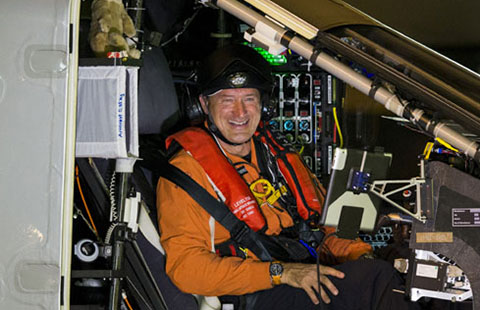
 Solar-powered plane breaks solo flight record
Solar-powered plane breaks solo flight record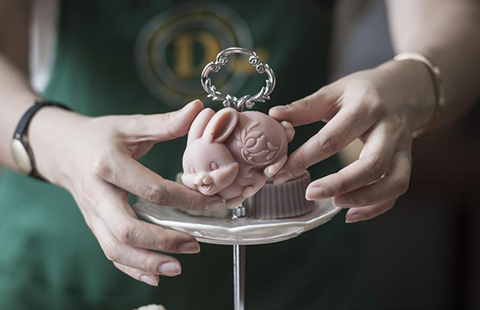
 A soap maker's fragrant life
A soap maker's fragrant life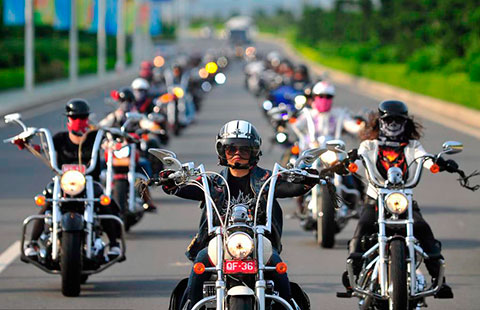
 Ten photos you don't wanna miss - July 3
Ten photos you don't wanna miss - July 3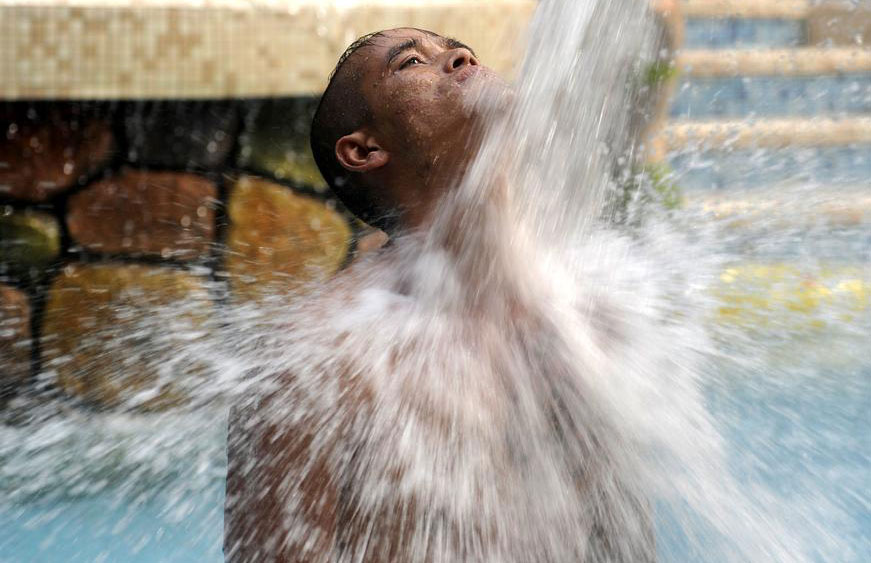
 Cooling off to escape the heat wave
Cooling off to escape the heat wave
 Top 10 best hotel booking apps for Android
Top 10 best hotel booking apps for Android
 Western Europe swelters in long-lasting heat wave
Western Europe swelters in long-lasting heat wave
 Top 10 shareholders of AIIB
Top 10 shareholders of AIIB
Most Viewed
Editor's Picks

|

|

|

|

|

|
Today's Top News
Will Alibaba, Amazon clash?
China-France ties 'benefit all'
Veteran diplomat in Havana shortlisted for ambassador
Solar-powered plane breaks solo flight record
California mulls move to 'zero-emission buses'
Move to Houston pays off with new business
IPR law acted out
Economic growth driving force for China's future mobility: Think tank
US Weekly

|

|






